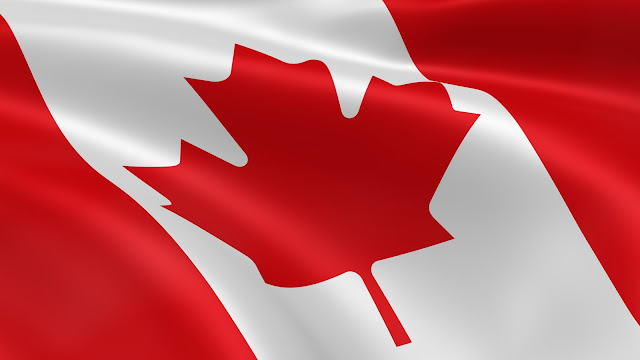Studying in Canada can be a great opportunity to gain a quality education and experience a new culture. Here are some steps to take if you are interested in studying in Canada:
- Research universities and programs: Start by researching universities and programs in Canada that offer courses that match your interests and career goals. You can visit university websites or use online directories to explore the options.
- Meet admission requirements: Once you have identified a program of interest, make sure you meet the admission requirements. This may include academic qualifications, language proficiency, and other criteria.
- Apply to universities: After you have identified a program and met the admission requirements, you can apply to the university through their online application system or through a centralized application system, such as the Ontario Universities' Application Centre.
- Apply for a study permit: Once you have received an offer of acceptance from a Canadian university, you will need to apply for a study permit. This permit allows you to study in Canada for the duration of your program. You can apply online or through a Canadian embassy or consulate in your home country.
- Plan your finances: Studying in Canada can be expensive, so it's important to plan your finances carefully. This may involve applying for scholarships, bursaries, or other forms of financial aid.
- Prepare for your move: Once you have received your study permit, you can make arrangements to travel to Canada. This may involve booking flights, finding accommodations, and arranging for transportation.
- Get settled in Canada: Once you arrive in Canada, you can begin to settle in and adjust to your new surroundings. This may involve attending orientation sessions, meeting new people, and exploring the campus and community.
Studying in Canada can be an exciting and rewarding experience, but it requires careful planning and preparation. Be sure to research your options carefully and seek advice from experts to ensure a smooth transition to life as an international student in Canada.
Research universities and programs
Researching universities and programs is an important step when considering studying in Canada. Here are some tips on how to conduct research on universities and programs:
- Explore university websites: Visit the websites of the universities you are interested in to learn more about their programs, admission requirements, tuition fees, campus life, and other information. You can also check if they offer virtual tours or webinars to get a better idea of what it's like to study at the university.
- Use online directories: There are many online directories that can help you search for universities and programs in Canada. Some popular ones include Study in Canada, Universities Canada, and School Finder.
- Attend education fairs: Education fairs are a great way to meet representatives from Canadian universities and learn more about their programs. These events are often held in major cities around the world, and you can find information about them online.
- Talk to current students: If possible, try to connect with current students at the universities you are interested in to get their perspectives on the programs and campus life. You can find student groups on social media or through the university website.

By taking the time to research universities and programs in Canada, you can make an informed decision about where to study and find a program that matches your interests and career goals.
Reasons to Study in Canada
Here are key reasons why studying in Canada can be a great choice:
- Quality education: Canada is home to some of the world's top universities, offering quality education and research opportunities. Canadian degrees and diplomas are recognized globally and can enhance your career prospects.
- Welcoming and inclusive culture: Canada is known for its welcoming and inclusive culture, making it a great place for people from all backgrounds to live, work, and study.
- Safe and peaceful environment: Canada is consistently ranked as one of the safest and most peaceful countries in the world, providing a secure environment for students to study and live in.
- Affordable education: Tuition fees in Canada are relatively affordable compared to other countries like the United States and the United Kingdom. Additionally, scholarships and bursaries are available to international students to help with the cost of education.
- Opportunity for post-graduation work: International students who graduate from a Canadian university can apply for a post-graduation work permit, which allows them to gain valuable work experience in Canada after completing their studies.
- Multicultural environment: Canada is a multicultural country, and students can meet people from all over the world and learn about different cultures and traditions.
- High standard of living: Canada has a high standard of living, with affordable healthcare, low crime rates, and a high quality of life.
- Quality of life: Canada is consistently ranked as one of the best places to live in the world, thanks to its high standard of living, healthcare, and social safety net.
- English and French language opportunities: Canada is a bilingual country, and students have the opportunity to study in English or French, or even learn both languages while studying in Canada.
Overall, studying in Canada provides students with access to quality education, a welcoming and multicultural environment, and ample opportunities for post-graduation work and career growth, all in a safe and beautiful country.
Study and work in CANADA
Studying and working in Canada is definitely possible. Here are some steps you can follow:
- Research your options: Canada has many universities and colleges that offer a variety of programs. Research the programs you're interested in and the schools that offer them. Consider factors such as tuition fees, location, and program requirements.
- Apply to a Canadian school: Once you've chosen a program and school, you'll need to apply. Each school has its own application process, so be sure to follow the instructions carefully. You may need to provide transcripts, essays, and letters of recommendation.
- Obtain a study permit: To study in Canada as an international student, you'll need a study permit. You can apply for a study permit online or through a visa application centre. You'll need to provide proof of acceptance from a Canadian school, financial support, and a passport.
- Work while studying: As an international student, you can work part-time on campus without a work permit. You can also apply for a co-op or internship program to gain work experience in your field of study. After graduation, you may be eligible for a work permit through the Post-Graduation Work Permit Program.
- Apply for permanent residency: If you want to stay in Canada after graduation, you may be eligible to apply for permanent residency. Canada has several immigration programs that can help you achieve this goal.
It’s important to note that the process of studying and working in Canada can be complex, so it’s a good idea to consult with a qualified immigration lawyer or consultant for guidance.
Study permit in Canada
A study permit is a document issued by the Canadian government that allows international students to study in Canada. Here are the steps to apply for a study permit:
- Choose a school and program: Research Canadian schools and programs that interest you. Make sure the program meets your career goals and that the school is designated by the Canadian government to host international students.
- Apply to the school: Apply to the Canadian school you have chosen. The school will provide you with an acceptance letter if you are admitted. You will need this letter to apply for a study permit.
- Gather documents: Gather the necessary documents, such as your passport, acceptance letter, and financial statements. You will need to prove that you have enough money to pay for tuition, living expenses, and return transportation to your home country.
- Apply for the study permit: Apply for the study permit online or by mail. You will need to pay the application fee and provide biometric information (fingerprints and a photo). Processing times can vary, so be sure to apply well in advance of your intended start date.
- Wait for a decision: The Canadian government will review your application and make a decision. If approved, you will receive a letter of introduction that you will need to present to a Canadian border official when you arrive in Canada. The office will issue your study permit.
It’s important to note that you may also need a visitor visa or electronic travel authorization (eTA) depending on your country of origin. Be sure to check the requirements before applying for your study permit.
Eligibility of study permit
To be eligible for a study permit in Canada, you must meet the following requirements:
- You must have been accepted by a designated learning institution in Canada. The institution must have a valid designation from the Canadian government to host international students.
- You must have enough money to pay for tuition fees, living expenses, and return transportation to your home country. You may be required to provide proof of financial support, such as bank statements, to support your application.
- You must be in good health and willing to undergo a medical examination if required.
- You must satisfy the Canadian government that you will leave Canada at the end of your authorized stay.
- You must have no criminal record and be able to provide a police certificate if required.
- You may be required to provide evidence of language proficiency in English or French, depending on the language of instruction of your program.
Kindly note that meeting these requirements does not guarantee that you will be issued a study permit. The Canadian government may refuse your application if they determine that you are not a genuine student, that you do not meet the eligibility requirements, or if there are concerns regarding your admissibility to Canada. It’s a good idea to consult with a qualified immigration lawyer or consultant for guidance on the application process.
Work permit in Canada
A work permit is a document issued by the Canadian government that allows a foreign national to work in Canada. Here are the steps to apply for a work permit:
- Find a job offer: You need a job offer from a Canadian employer before you can apply for a work permit. The employer may need to obtain a Labour Market Impact Assessment (LMIA) from the government, depending on the type of job and your country of origin.
- Gather documents: Gather the necessary documents, such as your passport, job offer letter, and educational qualifications. You may also need to provide proof of language proficiency, depending on the job.
- Apply for the work permit: Apply for the work permit online or by mail. You will need to pay the application fee and provide biometric information (fingerprints and a photo). Processing times can vary, so be sure to apply well in advance of your intended start date.
- Wait for a decision: The Canadian government will review your application and make a decision. If approved, you will receive a work permit that specifies the type of job, employer, and duration of your stay in Canada.
There are different types of work permits, such as open work permits and employer-specific work permits. The requirements and application process may differ depending on the type of work permit you are applying for. Additionally, some foreign nationals may be exempt from the LMIA requirement under certain circumstances, such as through international agreements or reciprocal employment programs. It’s a good idea to consult with a qualified immigration lawyer or consultant for guidance.
Eligibility of work permit
To be eligible for a work permit in Canada, you must meet the following requirements:
- You must have a job offer from a Canadian employer. The employer may need to obtain a Labour Market Impact Assessment (LMIA) from the government, depending on the type of job and your country of origin.
- You must demonstrate that you have the skills, experience, and education required for the job.
- You must demonstrate that you will leave Canada at the end of your authorized stay.
- You must satisfy Canadian immigration authorities that you will not pose a threat to national security or public safety.
- You must undergo a medical examination if required.
- You must have no criminal record and be able to provide a police certificate if required.
It’s advisable to consult with a qualified immigration lawyer or consultant for guidance on the application process, as there may be additional requirements or factors that could affect your eligibility for a work permit in Canada.
PR v/s Immigration
PR (Permanent Residence) and Immigration are related but different concepts.
Immigration refers to the process of moving from one country to another with the intent to settle permanently. This can include obtaining a temporary visa, studying or working in a foreign country, and eventually applying for permanent residence.
Permanent Residence (PR) refers to a legal status granted to foreign nationals who are authorized to live and work in a country permanently. PR status allows individuals to stay in a country for an indefinite period, work for any employer, and receive social benefits like healthcare and education. PR status can be granted through various immigration programs, such as skilled worker programs, family sponsorship, or humanitarian and refugee programs.
PR / Immigration in Canada
PR stands for “Permanent Residency” in Canada. It is a status that allows an individual to live and work in Canada on a permanent basis, with most of the same rights and privileges as Canadian citizens.
To be eligible for permanent residency in Canada, you must meet the eligibility requirements for one of the immigration programs offered by the Canadian government. These programs include:
- Express Entry: This is a federal immigration program for skilled workers who want to immigrate to Canada. It is a points-based system that ranks applicants based on factors such as their age, education, language skills, work experience, and other factors.
- Provincial Nominee Programs (PNPs): These are immigration programs that are run by individual provinces and territories in Canada. They allow the provinces and territories to nominate immigrants who have the skills and experience required to meet their specific economic and labor market needs.
- Family sponsorship: This is a program for Canadian citizens or permanent residents who want to sponsor their spouse, common-law partner, dependent child, parent, or grandparent to immigrate to Canada.
- Business immigration: This is a program for individuals who want to invest in or start a business in Canada. There are several programs available, including the Start-Up Visa program and the Self-Employed Person program.
- Humanitarian and compassionate grounds: This program is for individuals who are in Canada and are facing exceptional circumstances that make it difficult for them to return to their home country.
The eligibility requirements for each program may vary, but generally, you will need to provide proof of your language proficiency, education, work experience, and financial resources, as well as undergo a medical examination and security/background check.
Once you have been granted permanent residency, you will have the right to live and work anywhere in Canada, access healthcare and other social services, and apply for Canadian citizenship after meeting certain residency and other requirements.
It’s important to note that the permanent residency application process can be complex and time-consuming, and there may be limited spots available for certain programs. Always seek advice from a professional and qualified consultant.
Guidelines to acquire PR in Canada
To acquire Permanent Residency (PR) in Canada, you will need to meet the eligibility requirements of one of the immigration programs offered by the Canadian government. Here are some general guidelines to help you acquire PR in Canada:
- Eligibility: The first step is to determine your eligibility for one of the immigration programs. You can use the online tool called "Come to Canada" on the Government of Canada's website to assess your eligibility. Alternatively, you can consult with a qualified immigration lawyer or consultant for guidance.
- Choose the right program: Based on your eligibility, you will need to choose the right immigration program. The most common programs are Express Entry, Provincial Nominee Program (PNP), Family sponsorship, Business immigration, and Humanitarian and compassionate grounds.
- Submit an Expression of Interest: If you are eligible for Express Entry or a PNP, you will need to submit an Expression of Interest (EOI) to indicate your interest in immigrating to Canada.
- Complete the application process: Once you receive an invitation to apply, you will need to complete the application process, which typically involves submitting supporting documents, undergoing a medical examination, and providing biometrics.
- Wait for a decision: After submitting your application, you will need to wait for a decision from the Canadian government. The processing times can vary depending on the program and the volume of applications.
- Receive your Permanent Residency: If your application is approved, you will receive your Permanent Residency status, which will allow you to live and work in Canada indefinitely.
Guidelines to acquire Immigration in Canada
Here are some general guidelines to acquire immigration status in Canada:
- Determine your eligibility: Review the eligibility requirements for the immigration program you are interested in, such as the Federal Skilled Worker Program, Canadian Experience Class, or Provincial Nominee Program. You will need to meet certain criteria related to education, work experience, language proficiency, and other factors.
- Submit an application: Once you determine that you are eligible for an immigration program, you can submit an application to Immigration, Refugees and Citizenship Canada (IRCC). Your application will be reviewed by IRCC, and you may be asked to provide additional information or attend an interview.
- Provide supporting documents: You will need to provide supporting documents as part of your application, such as proof of education, work experience, language proficiency, and other documents related to your immigration program. These documents will be used to assess your eligibility for the program.
- Attend medical and security checks: Depending on the immigration program you apply for, you may be required to attend a medical exam and provide security clearance. This is to ensure that you are admissible to Canada and do not pose a risk to Canadian security or public health.
- Wait for a decision: The processing time for immigration applications can vary depending on the program and your individual circumstances. You can check the current processing times on the IRCC website. Once a decision is made, you will be notified of the outcome of your application.
Advantage Canada
There are several advantages to studying, working, or immigrating to Canada. Here are some of the benefits of Canada:
- Quality education: Canada is home to some of the world's top universities, offering quality education and research opportunities. Canadian degrees and diplomas are recognized globally and can enhance your career prospects.
- Diversity and inclusivity: Canada is known for its welcoming and inclusive culture, making it a great place for people from all backgrounds to live, work, and study.
- High standard of living: Canada has a high standard of living, with affordable healthcare, low crime rates, and a high quality of life. The country also has a strong social safety net, providing support for those in need.
- Career opportunities: Canada has a strong economy and is experiencing a shortage of skilled workers in many industries, creating job opportunities for immigrants and graduates. The country also has a thriving startup scene, with many incubators and accelerators supporting new businesses.
- Natural beauty: Canada is home to some of the most stunning natural landscapes in the world, including the Rocky Mountains, Niagara Falls, and the Canadian Shield. Outdoor enthusiasts can enjoy hiking, skiing, kayaking, and many other activities in Canada's great outdoors.
- Multicultural cuisine: Canada is home to a diverse range of cuisines, reflecting its multicultural population. From poutine to sushi to butter tarts, there is something for everyone to enjoy in Canada's food scene.
Overall, Canada offers a welcoming and inclusive environment, quality education, career opportunities, and a high standard of living, making it an attractive destination for study, work, and immigration.
Canadian government websites for job, PR and Immigration
Some useful Canadian government websites related to job, PR, and immigration:
- Job Bank: https://www.jobbank.gc.ca/home This is the official job site for the Government of Canada, where you can search for job openings across the country and create a job seeker account.
- Express Entry: https://www.canada.ca/en/immigration-refugees-citizenship/services/immigrate-canada/express-entry.html This is the main online application system for economic immigration programs, including the Federal Skilled Worker Program, the Federal Skilled Trades Program, and the Canadian Experience Class.
- IRCC: https://www.canada.ca/en/immigration-refugees-citizenship.html This is the main website for Immigration, Refugees and Citizenship Canada (IRCC), where you can find information on immigration programs, check application status, and access online services.
- MyCIC: https://www.canada.ca/en/immigration-refugees-citizenship/services/application/account.html This is the online portal for accessing your immigration application status, uploading documents, and communicating with IRCC.
- Canada.ca: https://www.canada.ca/en/services/immigration-citizenship.html This is the official website of the Government of Canada, where you can find information on a wide range of topics related to immigration and citizenship, as well as other government services.
These websites are reliable sources of information and services related to job, PR, and immigration in Canada, and they can help you navigate the complex process of immigrating to Canada or finding a job in the country.
Government Support:
There are several ways Indian students can get help from the Canadian government:
Student Direct Stream (SDS) program: Indian students who meet certain eligibility criteria can apply for a study permit through the SDS program, which offers faster processing times and additional support for visa applications.
Study in Canada website: The Canadian government’s Study in Canada website provides information on Canadian universities and colleges, scholarship opportunities, and other resources for international students.
- Canadian diplomatic missions in India: The Canadian High Commission in New Delhi and Consulate General offices in other major Indian cities provide consular services, including visa and immigration assistance, to Indian students.
- EduCanada fairs and events: The Canadian government organizes EduCanada fairs and events in India and other countries to promote Canadian education and provide information on study opportunities.
- Canada-India Centre for Excellence (CICE): The CICE is a research and knowledge hub that promotes academic and research partnerships between Canada and India, and provides support for Indian students and researchers studying in Canada.
The Canadian government is committed to supporting international students, including those from India, and provides a range of resources and services to help them succeed in their studies and life in Canada. But it advisable for students to explore necessary information from reliable sources or from a professional & qualified consultant.
Important notes:
- Online learning: Many universities in Canada are offering online learning options for international students who are unable to travel to Canada due to the pandemic. This allows students to continue their education and pursue their academic goals remotely.
- Post-graduation work permit: The Canadian government has announced changes to the post-graduation work permit program, allowing international students to apply for a 3-year work permit instead of the previous 1-year permit. This provides more opportunities for international students to gain valuable work experience in Canada after completing their studies.
- International student enrollment: According to recent data, the number of international students studying in Canada has continued to increase over the past few years, with a 15% increase in enrollment between 2019 and 2021.
- Scholarships and financial aid: There are many scholarships and financial aid options available for international students studying in Canada, including the Canadian government’s International Scholarship Program and various university-specific scholarships and bursaries.
Important notes:
- Online learning: Many universities in Canada are offering online learning options for international students who are unable to travel to Canada due to the pandemic. This allows students to continue their education and pursue their academic goals remotely.
- Post-graduation work permit: The Canadian government has announced changes to the post-graduation work permit program, allowing international students to apply for a 3-year work permit instead of the previous 1-year permit. This provides more opportunities for international students to gain valuable work experience in Canada after completing their studies.
- International student enrollment: According to recent data, the number of international students studying in Canada has continued to increase over the past few years, with a 15% increase in enrollment between 2019 and 2021.
- Scholarships and financial aid: There are many scholarships and financial aid options available for international students studying in Canada, including the Canadian government’s International Scholarship Program and various university-specific scholarships and bursaries.
Important places to visit
Canada is a vast and diverse country with many exciting places to visit. Here are some of the top tourist destinations in Canada.
- Banff National Park: Located in the Canadian Rockies, Banff National Park is known for its stunning mountain scenery, crystal-clear lakes, and abundant wildlife.
- Niagara Falls: One of the most famous natural wonders in the world, Niagara Falls straddles the border between Canada and the United States and offers breathtaking views of cascading waterfalls.
- Old Quebec: A UNESCO World Heritage Site, Old Quebec is a charming historic district with narrow streets, colorful buildings, and vibrant French culture.
- Toronto: Canada’s largest city is home to a diverse range of cultural attractions, including the CN Tower, the Royal Ontario Museum, and the Art Gallery of Ontario.
- Vancouver: Located on Canada’s west coast, Vancouver is a cosmopolitan city with a stunning natural setting, surrounded by mountains, forests, and the Pacific Ocean.
- Ottawa: Canada’s capital city is home to many historic landmarks and cultural institutions, including the Parliament Buildings, the National Gallery of Canada, and the Canadian Museum of History.
- Churchill: Located in northern Manitoba, Churchill is known as the “polar bear capital of the world” and is a popular destination for wildlife viewing and outdoor adventure.
- Peggy’s Cove: Located in Nova Scotia, Peggy’s Cove is a picturesque fishing village with a lighthouse perched on a rocky outcropping overlooking the Atlantic Ocean.
These are just a few examples of the many amazing places to visit in Canada, and there are many more to discover.
Studying in Canada is a dream for many students around the world, and for good reason. Canada is known for its high-quality education system, diverse and welcoming society, and a strong economy.
Canadian universities and colleges offer a wide range of programs and research opportunities, and many of them are recognized globally for their academic excellence. International students in Canada have access to resources such as study permits, work permits, and health insurance, which can help them make the most of their educational experience and transition into the workforce after graduation.
In addition, Canada is a safe and inclusive country that values diversity, multiculturalism, and human rights. International students can enjoy a high standard of living and a wide range of cultural activities, from exploring natural wonders like Niagara Falls and Banff National Park to experiencing world-class museums, music festivals, and sports events.












